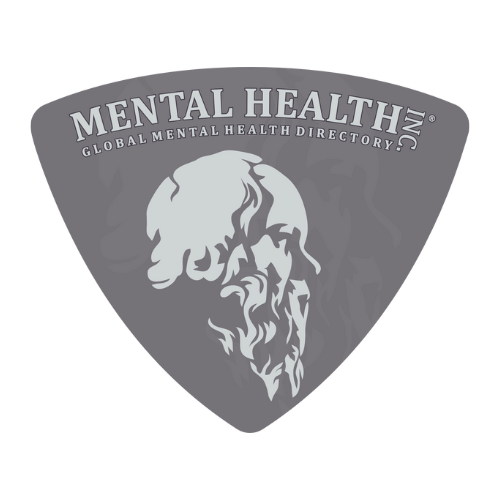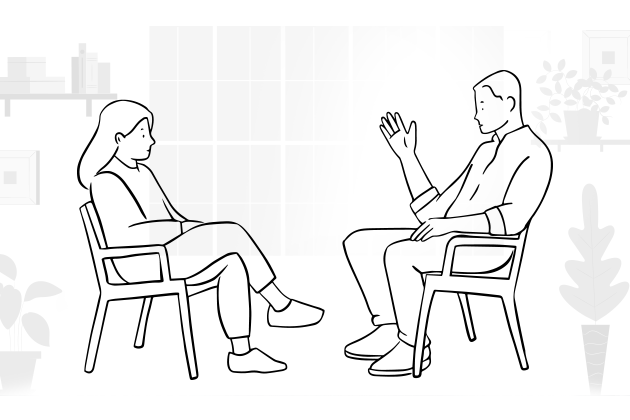Degree with Diploma Program
Master’s in Psychology
Basic & Advance LevelFull lifetime access
Access on mobile and TV
Degree of completion
24 articles
Created By
Emo Matrix
Duration
2 Year

Cost
₹250,000
Zero Cost EMI Options Available!
20%
OFF

























What Will You Learn
- Topic
- Benefits
Degree Program
Semester – 1st
- Advanced General Psychology I
- Developmental Psychology I
- Personality Theories
- Research Methodology
- School Counselling
Semester – 2nd
- Advanced General Psychology II
- Developmental Psychology II
- Behavior Modification
- Health Psychology
- Marketing and Consumer Psychology
Semester – 3rd
- Applied Social Psychology I
- Abnormal Psychology I
- Counselling Psychology
- Positive Psychology
- Marriage and family Counseling
Semester – 4th
- Applied Social Psychology II
- Abnormal Psychology II
- LGBTQ Counselling
- Psychological Assessments - Practical Paper
- Project Work
Diploma Program
Counseling Psychology
- Counseling Skills
- Counseling Basics
- Types of Counseling
- Personality of a Counselor
- 3 Counseling Approaches
- 5 Step Counseling Process
- 12 Modern Counseling Skills
- 8 Therapies Simplified
- Counseling Procedure
- Counseling Vs Therapy
- Self Care for counselor
- Online Vs Offline Counseling
- Counseling Ethics & Principles
- Individual Vs. Group Counseling
- Self-Care
- Expressive Therapies
- Narrative Therapy
- Crisis Intervention
- Work Stress
- Music Therapy
- Art Therapy
- Sexual Harassment
- Doodling
- Focus and Memory
- Depression Counseling
- Relationship Counseling
- Anger Counseling
- Addiction Counseling
- Stress & Anxiety
- Guilt and Regret
- Behaviour Counseling
- Workplace Counseling
Psychotherapy
- What are counselling and psychotherapy?
- What do people come to counselling and psychotherapy for?
- What are the training routes in counselling and psychotherapy?
- Where do counsellors and psychotherapists work?
- The Basics of Therapeutic Practice
- The Counselor as a Therapeutic Person
- The Counselor’s Values and the Therapeutic Process
- Issues Faced by Beginning Therapists
- Resistance variables
- Introducing therapeutic skills and clinical practice: the ‘basics’ of therapeutic practice?
- The client-therapist relationship
- Assessment
- Risk: assessment, exploration and mitigation
- Formulation
- Using outcome and process measures
- Therapeutic beginnings
- Therapeutic middles
- Therapeutic endings
- Introducing professional issues: therapeutic skills ‘beyond therapy’
- Personal and Professional development
- Clinical supervision
- Leadership
- Confidentiality, note taking and record keeping
- Ethical codes and guidance
- Responding to complaints
- Client experiences
- Therapy and the law
- Mental health law
- Fundamentals of research
- Psychoanalytic therapy, techniques and application to a case
- Existential therapy, techniques and application to a case
- Person centered therapy, techniques and application to a case
- Gestalt therapy, techniques and application to a case
- Behavior therapy, techniques and application to a case
- Cognitive Behaviour therapy, techniques and application to a case
- Family systems therapy, techniques and application to a case
- Relaxation exercises and meditation
- Biofeedback
- Confrontation
- Hypnosis
- Play therapy
- Art therapy
Clinical Psychology
- What is Clinical Psychology
- Requirements to be a Clinical Psychologist
- Activities of a Clinical Psychologist
- Evidence-Based Practice in Psychology
- Ethics and Code of Conduct
- Categorical and Dimensional Approaches
- The Diagnostic And Statistical Manual Of Mental Disorders (DSM) System
- The International Statistical Classification of Diseases and Related Health Problems (ICD)
- Comorbidity
- Ethnic and Cultural Considerations in Diagnosis
- Key Concepts in Assessment
- Clinical Interviews
- Assessment of Stress
- Personality Tests
- Intelligence Tests
- Behavioral and Cognitive Assessment
- Direct Observation of Behavior
- Self-Monitoring
- Cognitive-Style Questionnaires
- Neurobiological Assessment
- Brain Imaging: "Seeing" the Brain
- Neuropsychological Assessment
- Psychophysiological Assessment
- Generalized Anxiety Disorder - Causes & Treatment
- Panic Disorder - Causes & Treatment
- Phobia - Causes & Treatment
- Social Anxiety Disorder - Causes & Treatment
- Trauma- and Stressor-Related Disorders - Causes & Treatment
- Obsessive-Compulsive and Related Disorders - Causes & Treatment
- Somatic Symptom and Related Disorders and Dissociative Disorders - Causes & Treatment
- Mood Disorders Suicide - Causes & Treatment
- Eating Disorders - Causes & Treatment
- Sleep-Wake Disorders - Causes & Treatment
- Schizophrenia Spectrum and Other Psychotic Disorders - Causes & Treatment
- Attention-Deficit/Hyperactivity Disorder - Causes & Treatment
- Specific Learning Disorder - Causes & Treatment
- Autism Spectrum Disorder - Causes & Treatment
- Intellectual Disability (Intellectual Developmental Disorder) - Causes & Treatment
- Prevention of Neurodevelopmental Disorders
- Alcohol-Related Disorders - Sedative, Hypnotic, or Anxiolytic-Related Disorders
- Stimulant-Related Disorders
- Causes of Substance-Related Disorders
- Treatment of Substance-Related Disorders
- Gambling Disorder
- Impulse-Control Disorders
- Intermittent Explosive Disorder
- Kleptomania
- Pyromania
- Cluster A Personality Disorders
- Cluster C Personality Disorders
Relationship & Marriage Counseling
- What is Relationship
- Types of Relationship
- Dynamics of Relationship
- Relationship Counseling
- Approaches & Exploration of Relationship Counseling
- Types of Assessment Used
- Activities to resolve conflicts
- Problem Solving Session
- Marital Adjustment Scale
- Conflicts in Relationship
- Barriers in Communication
- Conduction of Counseling Session
- Research in Relationship Counseling
- Techniques to resolve conflicts
- Stages & Goals of Relationship Therapy
- Initial contact versus the intervention
- Case Studies
- Perception of Relationship
- Phases of Relationship
- Components of Relationship
- Code of Conduct Formula
- Reflection Therapy
- Association Therapy
- Separation Therapy
- Psychology of Relationship
- 4 Golden words in Relationship
- Session Strategy
- Counseling Pitch
- Understanding the dynamics of relationships and the stages of marriage
- Communication skills and conflict resolution technique
- Intimacy and sexual issues
- Cultural and diversity considerations
- Family of origin and how it affects the relationship
- Family Dynamics and individual differences
- Trauma and its impact on the relationship
- Therapies involved in the area of marital Counseling
- Ethics and legal considerations
- Techniques for working with couples in crisis
- Assessment and treatment planning
- Practice management and building a successful private practice
- Basics of Counseling Skills
- Role of a Marriage Counselor
- Qualifications of a Marriage Counselor
- Complications in Marital Counseling
- Emotional Intelligence and its role in Marital Counseling
Child & Parenting
- Child Psychology Simplified
- Reasons for learning child Psychology
- Developmental Areas of child
- Developmental Theories
- Role Of Parents
- Factors of Child Development
- Language & Cognitive Development
- Attachment Styles
- Childhood Disorders
- Introduction to IQ Tests
- IQ tests & Applications
- Child Psychopathology
- Genetic & Abnormalities
- Scales & Screening Tools
Behavioral Specialist
- Defining human behavior
- Examples of behavior
- Defining behavior modification
- Characteristics of behavior modification
- Areas of application
- Reinforcement
- Extinction
- Punishment
- Stimulus control
- Behavioural assessment and diagnosis
- Behavioural diagnosis
- Initial analysis of problem situation
- Clarification of problem situation
- Motivational analysis
- Developmental analysis
- Analysis of self-control
- Analysis of social relationships
- Analysis of the social-cultural-physical environment
- Behavioural assessment
- Methods of observation
- Shaping - teaching a child to talk
- Prompting
- Transfer of stimulus control
- Chaining
- Behaviour contracts
- Self management
- Token economy
- Personality - Describing people
- Personality - Classifying traits
- The Big Five Personality
- Positive personality traits
- Dynamics of a shy personality
- Overcoming fear of public speaking
- Controlling anger
- Improving attention in class
What is included in this course?
- Global Recognition - NSDC & IAC, IEC
- International Presence – US, UK, Canada, India
- Expert Faculty - M.Phil. & PhD Psychologists
- Flexible Learning – Learn when want, finish when you can
- Hands on Experience– Live Sessions+ Internships + Video Study Group
- Templates & Worksheets – Ready to use session material
- Career support – Profile listing & Counseling Hotline
- Affordable Fee – Ranging from 10K to 2 Lac
What will you get with
Emo Matrix ?

World's 1st Psychology Consulting Company
Please Submit Your Details!
